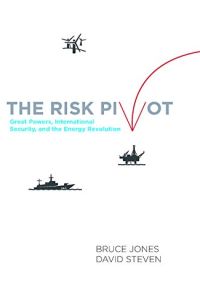
The Risk Pivot
Great Powers, International Security, and the Energy Revolution
Recommendation
Bruce Jones and David Steven of the Brookings Institution provide scenarios for establishing energy security in developing countries that depend on oil imports from politically unstable states. India, China and other Asian countries’ vulnerability to reduced energy imports is growing as their economies expand. The US has new strategic options because it’s now the largest natural gas producer and will replace Saudi Arabia as the largest oil producer. The US military presence in the Persian Gulf protects global shipments of Middle East oil. The US has the power to lead in forging forward-looking international agreements that ensure secure energy supplies for developing nations, especially China and India, while addressing divergent climate change concerns. getAbstract recommends the author’s well-researched, pragmatic overview. Their most important contribution may be their description of the geography of potential conflict.
Summary
About the Authors
Bruce Jones is vice president and director, foreign policy, at the Brookings Institution, where David Steven was a nonresident senior fellow in the foreign policy program.








Comment on this summary